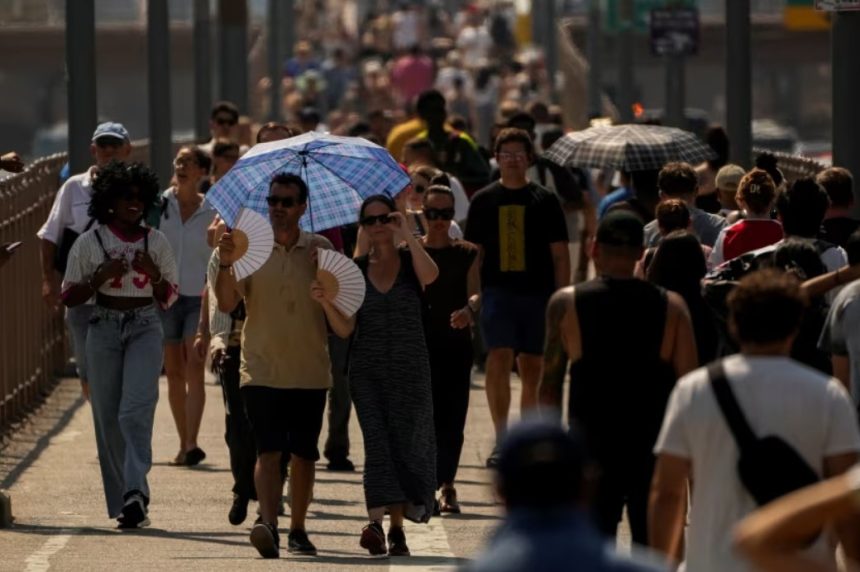UK Heatwave: Scientists Warn 32°C Days Now 100 Times More Likely
England braces for soaring weekend temperatures as experts link record-breaking heat to climate change.
England is on the brink of another scorching spell. Forecasts suggest parts of the country could hit 34°C this Saturday, making it one of the hottest days of the year so far.
But behind the sunshine and barbecues lies a stark warning: the UK heatwave gripping the nation is far from natural.
According to the World Weather Attribution (WWA) group, human-driven climate change has made 32°C heat in England 100 times more likely than it once was.
Before widespread fossil fuel use, such temperatures in June were almost unheard of — a once-in-2,500-year rarity. Now? They are expected roughly every five years.
Scientists sound the alarm
The WWA, an international team of climate scientists, carried out a rapid analysis ahead of this week’s heatwave. Their findings stress the hidden danger of extreme heat, particularly for public health.
“It is totally insane we have political leaders in the UK trying to drag us back to the past with calls for more fossil fuels,” says co-author Dr Friederike Otto of Imperial College London.
“The climate will continue to drive increasingly dangerous heatwaves, fires and floods in the UK until emissions are reduced to net zero globally.”
Heat records at risk
The Met Office warns Saturday could rival previous June records, with eastern England, from Lincolnshire to London, likely to bake in the mid-30s.
“Saturday could well end up being the hottest day so far this year, with highs around 33°C locally,” said meteorologist Lars Lowinski, speaking to Euronews Green.
The highest June temperature on record remains 35.6°C, set in 1976, but the frequency of near-record days is on the rise. The Met Office has already confirmed that 40°C days are now more than 20 times more likely than in the 1960s.
Health warnings issued
The UK Health Security Agency (UKHSA) has issued an Amber Heat Health Alert across England, running until Monday morning. The warning covers hospitals, care homes, and local authorities, urging extra caution for the most vulnerable.
“For the most vulnerable, temperatures above 28°C are dangerous in the UK, especially in June, before people have acclimatised to hotter weather,” explains Maja Vahlberg of the Red Cross Red Crescent Climate Centre.
“Sadly, most people die from heat indoors and alone, especially older populations and people with underlying health conditions.”
Dr Agostinho Sousa from UKHSA added: “Check on friends, family and neighbours who are more vulnerable and take sensible precautions while enjoying the sun.”
Inequality and climate
Beyond personal safety, experts warn that heatwaves expose deep social divides.
Dr Otto points to inequality as a hidden driver of risk: “People working in air-conditioned offices will probably be okay this week, but poorer people working outdoors, in kitchens, and in other hot environments endure these conditions all day and then return to poorly insulated flats that can become dangerously hot.
“Making our societies more equal is essential to reduce the impacts of climate change.”
Wildfire risks rising
Dry conditions after an arid spring have also heightened the risk of wildfires. Theodore Keeping, a wildfire researcher at Imperial College London, urged caution.
“People going outside to enjoy the warm weather should not be using fire or disposable barbecues, dispose of cigarette butts carefully and should immediately notify emergency services if they do notice a fire,” he said.
The science is clear. UK heatwaves are no longer freak events, they are fast becoming the new normal. With climate change pushing temperatures higher, the calls for urgent action are only getting louder.






